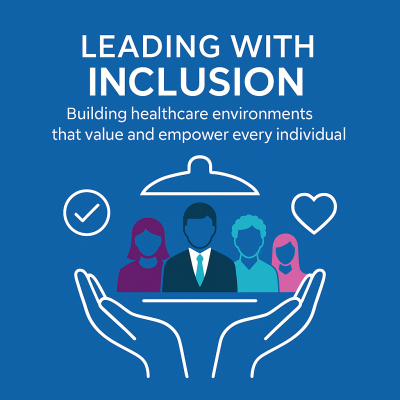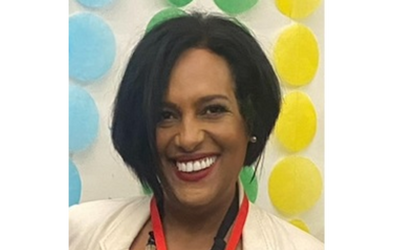It’s not about ticking boxes — it’s about building trust, shaping culture, and delivering care that truly includes everyone.
In today’s complex and high-pressure health and care landscape, leadership matters more than ever. But not just any leadership — inclusive leadership. The kind that isn’t just about who’s in the room, but how that room makes people feel.
Inclusive leadership transforms not only workplaces but entire communities. It creates environments where every team member, from the receptionist to the consultant, feels safe, respected, and seen. It acknowledges the lived experiences of staff from ethnically diverse backgrounds — and acts on them.
Yet, let’s be honest: inclusion can still be treated as a ‘nice to have’ rather than a necessity. Something that shows up in strategy documents and away day slides but doesn’t always translate into behaviour or culture.
We’re here to challenge that.
Why it matters — especially in health and care
The NHS and wider health and social care sector are built on trust. Patients need to trust that their care is culturally competent and bias-free. Staff need to trust that their contribution is valued and that career progression is about merit, not networks.
When leadership isn’t inclusive, that trust erodes — and with it, the morale and retention of the very people we rely on to deliver frontline care.
A 2022 report from NHS Employers revealed that organisations with inclusive cultures had significantly higher staff engagement and retention. Yet barriers remain: ethnically diverse staff are still underrepresented in senior roles, more likely to experience bullying and harassment, and less likely to feel they belong.
So what does inclusive leadership actually look like?
Inclusive leaders are curious and courageous. They create space for voices that often go unheard and actively dismantle systems that hold others back. They are transparent about what they know, and humble about what they don’t. They listen, they adapt, and they hold themselves accountable.
They also:
- Build psychological safety – so staff feel confident speaking up without fear of repercussion.
- Understand intersectionality – acknowledging how race, gender, disability, and class interact.
- Invest in equity, not just equality – giving people what they need to succeed, even if that’s different from what others need.
- Champion others publicly – using their platform to elevate those without one.
Inclusion is a leadership competency, not a side project
Inclusion isn’t the job of the EDI lead or HR team alone. It’s a core leadership skill that should be part of recruitment, appraisals, board discussions, and line management — not just Black or Asian History Month campaigns.
At the National B.A.M.E Health & Care Awards and B.I.D.E Summit, we’re not just recognising individuals who talk about inclusion — we’re honouring those who live it. Those who roll up their sleeves and reimagine what leadership can look like when it centres care, equity, and courage.
Because when leadership is inclusive, the ripple effect is powerful — teams thrive, patient outcomes improve, and culture shifts from performative to truly transformative.
Ready to celebrate those doing the real work?
Nominations for the 2025 National B.A.M.E Health & Care Awards are open now.
Let’s shine a light on the leaders, allies, and systems-shakers who are changing the narrative.
















sssds